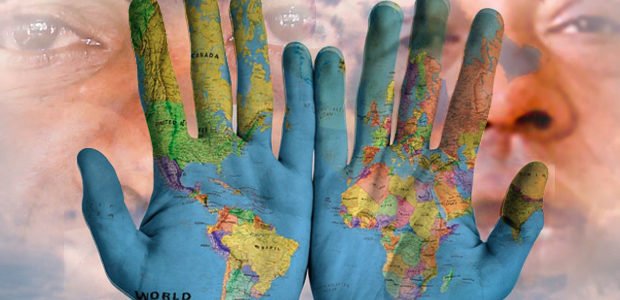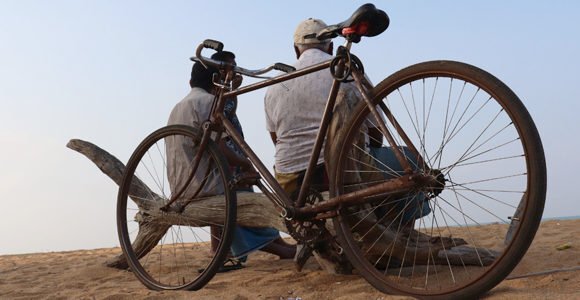
Youth Reconciliation A Meaningful Resolution
UPUL THAMMITA
The Easter Sunday attacks across Sri Lanka created an uncomfortable aftermath among the country’s populace. Just a decade after a 30-year long ethnic conflict, another one seemed to be on the horizon due to a small group with extremist ideologies. In the wake of this situation, The Catamaran spoke with opinion leaders, monks and civil society activists on the future responsibilities of the country’s youth to help maintain peace and build stronger bridges of reconciliation within the many communities that live here.
The Easter Sunday attacks across Sri Lanka created an uncomfortable aftermath among the country’s populace. Just a decade after a 30-year long ethnic conflict, another one seemed to be on the horizon due to a small group with extremist ideologies. In the wake of this situation, The Catamaran spoke with opinion leaders, monks and civil society activists on the future responsibilities of the country’s youth to help maintain peace and build stronger bridges of reconciliation within the many communities that live here.
Intelligence before emotion
“Seventy-one years have gone by since we gained independence. Every ten to twelve years human killings, bloodshed, and riots seem to be an eventuality in Sri Lanka” says Chaminda Jayasekera, Co-National Organizer of Sri Lanka Unites for Youth Development Society. He points out that racism and extremism are at an all-time high. This situation has also created mistrust among people who once lived together.
“This situation puts added pressure on the next generation of leaders. There are extremist groups in all religions of our country and laws must be enforced to prevent such ideologies from manifesting. By doing so, we enable future generations to inherit a country sans crisis. What I ask of youth groups is to think intelligently instead of letting extremism and racism lead us” he emphasized.
Not appropriate for Buddhist monks to fuel the flames
“Given the current situation in Sri Lanka it is not appropriate for the Buddhist monks to throw hay into a blazing fire” said the Chief Incumbent of the Sri Sambuddhathwa Jayanthi Viharaya and the Adjudicator of Sanganayaka of the North and North Central Provinces, Ven. Nugethanne Pannananda Thero.
Ven. Thero also point out that transparency is very important: “It is vital to be mindful of getting not caught to the various racketeers who play with human life.” He emphasized that all people of this country have the right to live freely and that leaders should ensure to uphold this right.
“The current situation has put moderate Muslims into a helpless condition. Corrective measures have to be taken immediately. Politicians are looking only at elections. There should be a country left to hold elections” he continued. “Unity is vital to a multi-ethnic country like Sri Lanka. T.B. Jayah was a Muslim leader who played a major role in the struggle for independence of the country. Muslims have also rendered a great service towards national development. When Muslims are left out in a multi-ethnic country, and if the leaders of hill country estate workers and Tamil parties in the North also withdraw, a communal situation will be automatically created. Reconciliation between all parties must be created and the guilty punished. All religious leaders including our Mahanayaka Theros, Cardinal and Maulavis are ready to give leadership to political leaders. The present situation must be improved and a programme worked out to bring people together.“
A Global Citizen Concept to end struggles
According to Mr. Jayalath Bandara Seneviratne, a civil society activist, the concept of Global Citizenship is best suited to end conflicts of interest that are constantly occurring between ethniticities around the world.
After the Easter Sunday attacks, some tried to create another Black July in the country; the 1983 anti-Tamil pogrom ended the lives and businesses of Tamil citizens, and was seen as the official start to the 30-year war that ensued. Due to the continuous reconciliation efforts, it was not possible for another such situation to occur.
“We have yet to find the constitutional provisions for a multi-religious, multi-national country where people can live freely. Our Constitution does not provide for enjoyment of democracy sans racial and religious differences. As a result, there was a devastating war for twenty seven years. Muslims also suffered as a result. The Kattankudi incident is an example. The outcome of this war was the formation of new political parties. Some of these leaders said that the parties were formed to prevent the risk of youth engaging in another armed conflict. We condemn the violent events at Beruwala and Dharga Town that planted a seed of racist extremism across the country. This created the background for religion and politics to combine without the consent of the public“, he said.
If the government listens to the people, the people will finally begin to trust in a democratic process. With the recent Easter Sunday incident, the protection of citizens has become questionable. The nature of governance reflects in society. If the state is run by religious extremists, the same will reflect in society as well.
Sinhala, Tamil and Muslim Citizen collectives must form a Global Citizenship Committee. Freeing ourselves from a minority mentality, we need to move towards a greater mindset. The Mega Mind mentality does not create divisions, only global citizens; a people without ethnic or religious differences. Nowadays, democracy is about pluralism. If the majority is wrong, the decision made are bad for the country. Today’s sophisticated communication process can be used as a platform to develop a global citizenship concept.
This article was originally published on the catamaran.com








